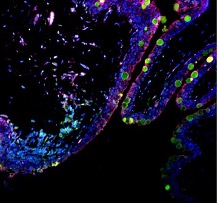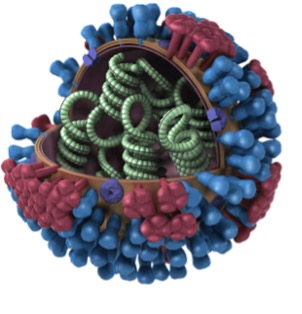The Carnaccini Lab: Organoids and Avian Influenza
Avian influenza viruses (AIVs), genus Alphainfluenzavirus, family Orthomyxoviridae, are highly contagious respiratory viruses that severely impact bird populations, causing significant morbidity, mortality, and economic losses in the poultry industry worldwide. Particularly concerning are the Asian-origin H5N1 subtype highly pathogenic avian influenza viruses (HPAIV) of clade 2.3.4.4b of the Gs/GD lineage, which emerged in 2013 and have since spread across Asia, Europe, Africa, and the Americas, leading to mass mortality events across a variety of avian and mammalian species. These viruses are also known zoonotic agents which may infect, cause severe respiratory disease and up to 40% fatality rates in humans if left untreated.
The Carnaccini’s lab is focused on studying the pathobiology and virus-host interaction of avian influenza virus through a combination of in vitro and in vivo virology assays, among which reverse genetics, histopathology, and immunofluorescence. The collaboration with the SMART Pharmacology lab, lead to the development of chicken lung organoids as a substitute to in vivo and complement existing in vitro testing. This will lead to a better understanding of the molecular mechanisms at the base of virus tissue tropism, kinetics of replication, and evolution towards more pathogenic outcomes.


